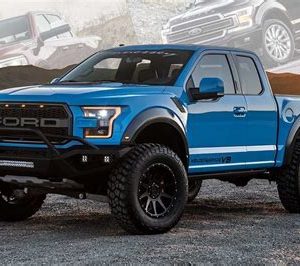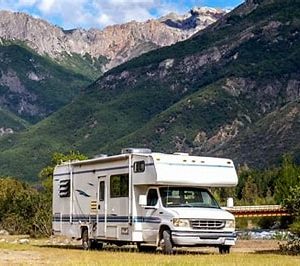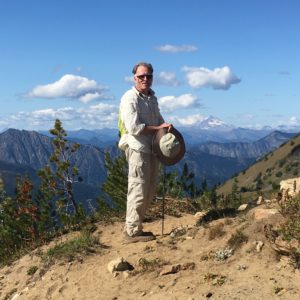Pick-Ups and Freedom
 One of the features of life here in Wallowa County/ Eastern Oregon is pick-up trucks. They seem to have become the vehicle of choice not only for work purposes but as a personal vehicle or family car. At rental cabins near us a group will routinely arrive with four or five pick-ups. And these aren’t jalopies. These are big honking machines, V-8’s that ride high, have lots of auxiliary lights, and when idling growl like a diesel truck.
One of the features of life here in Wallowa County/ Eastern Oregon is pick-up trucks. They seem to have become the vehicle of choice not only for work purposes but as a personal vehicle or family car. At rental cabins near us a group will routinely arrive with four or five pick-ups. And these aren’t jalopies. These are big honking machines, V-8’s that ride high, have lots of auxiliary lights, and when idling growl like a diesel truck.
It wasn’t always this way up here. All the farmers and ranchers had a pick-up for work purposes. Often they were jalopies, dented and faded, kept on the road with baling- wire and ingenuity. But the family car was a sedan. And locals seemed to aspire, like most Americans in the post-war period, to own a stylish Ford or Chevy. That was what they drove to town, to church, to dinner out.
 I find myself pondering the pick-up and it’s ubiquity. And because we’re in a park-resort area there are also a lot of another vehicle, RV’s. Some as tiny as the “tear-drop” trailer. Some as big as a fricking semi.
I find myself pondering the pick-up and it’s ubiquity. And because we’re in a park-resort area there are also a lot of another vehicle, RV’s. Some as tiny as the “tear-drop” trailer. Some as big as a fricking semi.
Sebastian Junger’s most recent book is called Freedom. In it he explores, among other things, the contrast between the hunter-gather and farming cultures. The hunter-gathers, a.k.a. “nomads,” could carry all that they possessed, all that they needed to sustain life. They were mobile. In such cultures, and because you couldn’t carry too much, wealth was not accumulated. Without accumulated wealth, leaders were more accountable to the group and less likely to wield power in an autocratic or tyrannical ways.
 When farming came along people became more settled, obviously. You can pick up your tent and carry it with you. Harder to do with a wheat-field. Not only were people of farming cultures more settled, they could store grain, which translated to wealth accumulation. And with this development you began to get wealthy classes and land-owners, taxation and standing armies. You got rulers who did accumulate not just wealth but fortunes, and “lorded” it over others.
When farming came along people became more settled, obviously. You can pick up your tent and carry it with you. Harder to do with a wheat-field. Not only were people of farming cultures more settled, they could store grain, which translated to wealth accumulation. And with this development you began to get wealthy classes and land-owners, taxation and standing armies. You got rulers who did accumulate not just wealth but fortunes, and “lorded” it over others.
Hunter-gatherers, says Junger, had three ways to maintain their freedom from the overlords made possible by farming and private property. They could out-run, out-fight, or out-think them.
So here’s what I’m wondering — do these massive pick-ups, RV’s and motorcycles (also big here) tap into a kind of species memory of hunter-gather resistance to concentrations of power? Does being “On the Road Again,” as Willie Nelson sang, in your RV or motorcycle or pick-up represent some kind of cultural-political resistance? Being “out” law? A throw back to the not being tied-down, not having someone tell me what I can or cannot do, and to the freedom of the hunter-gather/ nomad?
Marketing of all three — pick-ups, motorcycles and RV’s — appeals to such notions of freedom, breaking loose, taking off, going rogue.
 To this kind of thing we can add one more activity that is also popular here, backpacking (photo is yours truly on a backpacking trip, albeit not carrying a pack in this picture). Backpacking offers the same, you carry all that you need, mobility, sense of “getting away.” Because of my social class and conditioning I am more likely to tap into my ancient hunter-gatherer longings via backpacking than by buying an RV, although I must admit that I’ve toyed with the idea of an RV. One of my favorite books as a kid was Steinbeck’s Travels with Charlie. Near the end of his life Steinbeck took to the road in a camper with his dog, Charlie.
To this kind of thing we can add one more activity that is also popular here, backpacking (photo is yours truly on a backpacking trip, albeit not carrying a pack in this picture). Backpacking offers the same, you carry all that you need, mobility, sense of “getting away.” Because of my social class and conditioning I am more likely to tap into my ancient hunter-gatherer longings via backpacking than by buying an RV, although I must admit that I’ve toyed with the idea of an RV. One of my favorite books as a kid was Steinbeck’s Travels with Charlie. Near the end of his life Steinbeck took to the road in a camper with his dog, Charlie.
Where this think-piece started was me trying to figure out why huge pick-ups have become so damn popular in this neck of the woods. While the idea that you are striking a blow for freedom in a vehicle that gets 14 mpg and needs regular re-fueling at $100 a pop isn’t entirely sound, I suspect that there is some yearning and species memory of the hunter-gatherer at work here in these, the RV’s and motorcycles. Load it all up and out-run the bastards.
One of the historical ironies of this, in the Wallowas, is that it was here one of the last clashes of the true hunter-gatherers, the Nez Perce, with farming-private property culture of white settlers, took place. The farming/ private-property culture of the whites saw the hunter-gather Indians as uncivilized, which wasn’t true. They had a different type of civilization. In the end, Chief Joseph and his band tried to out-run their oppressors, often out-fighting them along the way. But hey were captured just shy of the Canadian border.
It makes you wonder if stuff never really goes away — like the urge to live the mobile life, carrying all you need — but just comes around again in a different form?
![Anthony B. Robinson [logo]](https://www.anthonybrobinson.com/wp-content/themes/anthonybrobinson/images/logo.png)
![Anthony B. Robinson [logo]](https://www.anthonybrobinson.com/wp-content/themes/anthonybrobinson/images/logo-print.png)